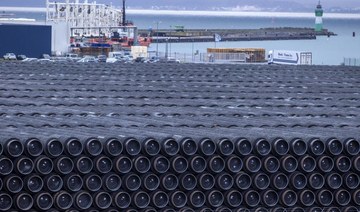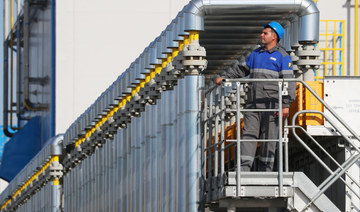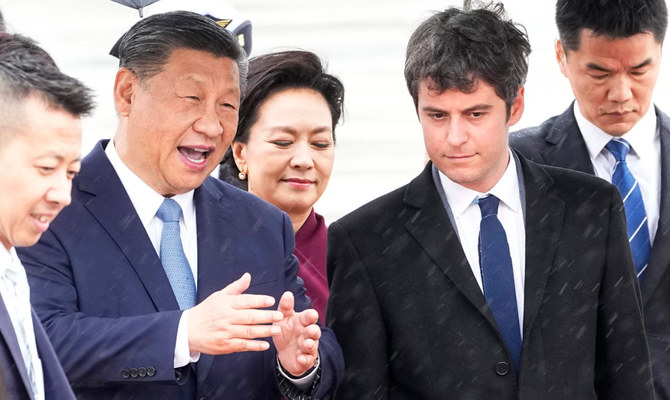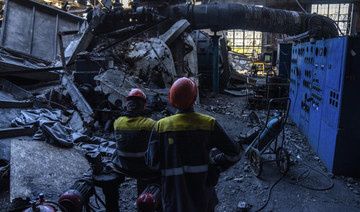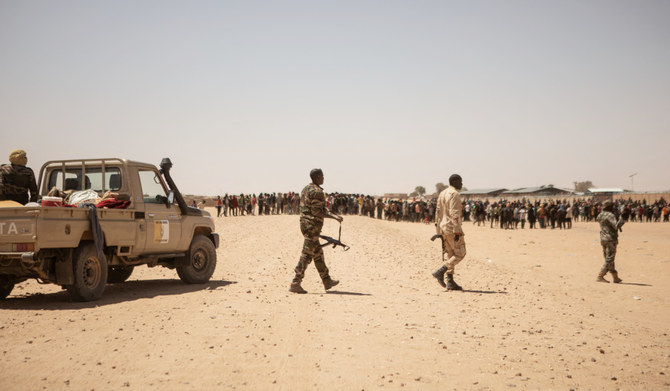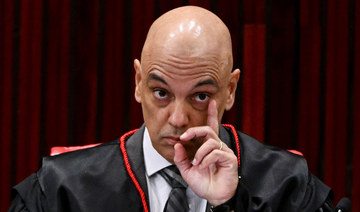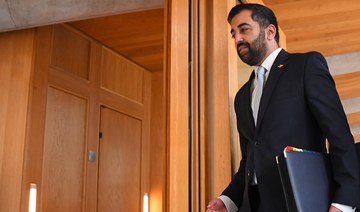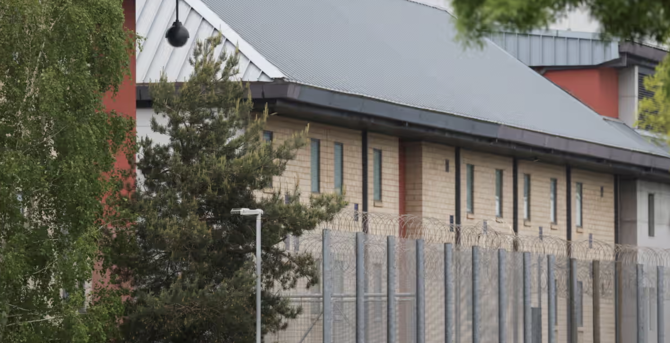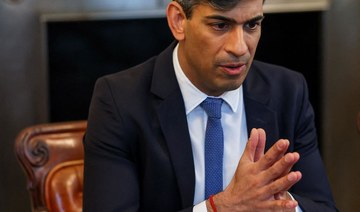FRANKFURT: After President Vladimir Putin’s latest move to escalate tensions in Ukraine, Germany is facing up to its dependence on Russian gas and the failure of its decades-long attempts to cooperate with Moscow.
Putin’s recognition of two breakaway regions in Ukraine prompted Western countries to respond with a raft of sanctions, with Chancellor Olaf Scholz pulling the plug on the controversial Nord Stream 2 pipeline from Russia.
Moscow’s aggressive steps had “changed” the situation, Scholz said, and thrown into question Germany’s energy security if it continued to rely on Russia.
Meanwhile, President Joe Biden announced Wednesday that the United States will join Germany in imposing sanctions on the Russian Nord Stream 2 natural gas pipeline project in retaliation for Moscow’s mounting military pressure against Ukraine.
Amid growing friction with the West over the last year, restricted deliveries of gas from Russia sent prices for energy to multi-year highs.
Having announced a stepwise withdrawal from nuclear energy after Japan’s Fukushima disaster in 2011, Germany is highly reliant on gas, with the fuel making up 26.7 percent of its mix.
The majority of those supplies, in turn, come from Russia over pipelines running through Ukraine, Poland and under the Baltic Sea.
When asked on Wednesday on public radio whether Europe’s largest economy could do without Russian gas should the taps be turned off as tensions climb, the minister for economy, energy and climate, Robert Habeck, said “yes, it can.”
Ending the dependence would however “drive prices higher,” Habeck said, causing a serious headache for consumers who have already seen their energy bills rise precipitously.
Despite opposition from the United States and other allies, Germany stood firmly behind the Nord Stream 2 pipeline project until recently.
As tensions mounted at the start of the year, Scholz was reproached for failing to explicitly name a stop to the controversial project among possible sanctions.
But he called time on the project’s approval process on Tuesday, and with it Germany’s more sympathetic diplomatic stance toward Moscow, which held out the possibility of working together.
The Russia policy pursued during former Chancellor Angela Merkel’s 16 years in office until 2021 was a “fatal mistake” the tabloid-style Bild said after the reversal.
Instead of taking Putin’s aggression seriously, Merkel and her foreign minister, now president, Frank-Walter Steinmeier had “let everything go,” the paper said.
With the recognition of the breakaway regions, “decades of German foreign policy lay in pieces,” the daily Sueddeutsche Zeitung wrote.
The targeting of Nord Stream 2 — one of energy-rich Russia’s highest-profile geostrategic initiatives — adds to Western sanctions announced by the United States and European allies this week against two Russian banks, several oligarchs and other measures.
Built to funnel Russian natural gas to Germany under the Baltic sea — bypassing the current overland route which traverses Ukraine — Nord Stream 2 has long been controversial. It is completely built, but has not been put in use.
“I have directed my administration to impose sanctions on Nord Stream 2 AG and its corporate officers,” Biden said in a statement, after Germany announced it was halting the project on Tuesday.
Although the pipeline is seen as an efficient way to supply energy to the European Union, which depends heavily on Moscow, critics say it also would tighten Russia’s strategic grip on European nations, while deliberately weakening Ukraine.
The White House had previously blocked attempts by Congress to impose sanctions against the pipeline, saying that construction was already more than 90 percent complete by the time Biden took office and that ally Germany was keen for the project to be completed.
However, with Russia shocking the world by massing troops on Ukraine’s border and Western leaders now saying an invasion is already underway, both Berlin and Washington abruptly shifted position.
Coming on top of Germany’s earlier decision to block legal certification, the US sanctions doom the project, according to Washington.
“By acting together with the Germans how we did, when we did, and the way in which we did, we have ensured that this is an $11 billion prize investment that is now a hunk of steel, sitting at the bottom of the sea,” State Department spokesman Ned Price said.
In his statement, Biden praised Germany as “a leader” on the issue and said that “as I have made clear, we will not hesitate to take further steps if Russia continues to escalate.”
“Through his actions, President Putin has provided the world with an overwhelming incentive to move away from Russian gas and to other forms of energy,” Biden said.
However, in the shorter term, there are fears that the closing of Nord Stream 2 will prompt Russia to use its resources to squeeze Europe’s already hard-pressed energy markets, as well as prompting higher fuel prices in the United States, where Biden faces strong political headwinds over inflation.





